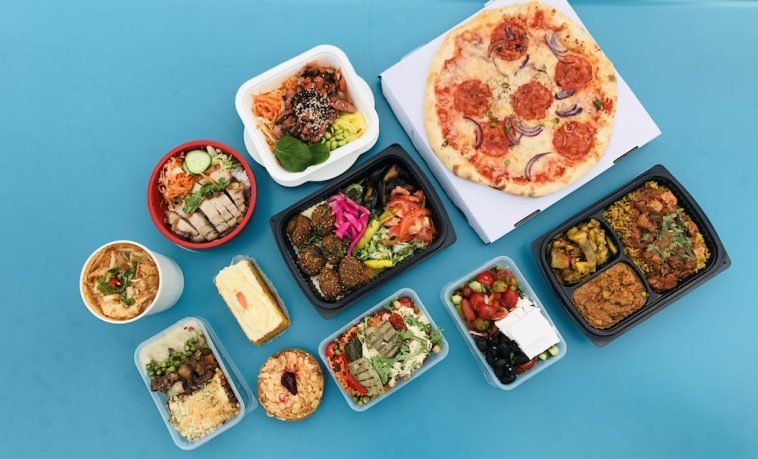Let’s be honest. The idea of turning your cooking skills into a thriving online business is more than just appealing right now—it’s a incredibly smart move.
I’ve spent over six years building and scaling online businesses, from affiliate marketing to eCommerce, and I can tell you this: the market for food in Nigeria is shifting.
It’s no longer just about the physical restaurant on the corner. It’s about convenience, story, and connection, all delivered through a screen.
This transition matters because the barriers to entry are lower than ever, but the need for strategy is higher than ever.
If you’re sitting on a secret recipe, a family-famous dish, or just a burning desire to create, this guide is for you.
I’m not going to paint an overly rosy picture or use complex jargon. I’m going to walk you through the exact, practical steps I’d take if I were starting an online food business in Nigeria today, based on real digital marketing and business principles that actually work.
Step 1: Find Your Corner of the Market (The Research Phase)
Don’t just say “I’ll sell food.” The most common mistake is being too general. Your first job is to find a hungry audience that isn’t being fully served.
- Look Around You: What are people in your city constantly complaining about? Is it a lack of healthy office lunches? Authentic Ijebu eko? Gourmet cupcakes for birthdays? Read local social media group comments.
- Solve a Problem: The best businesses solve problems. Your problem could be “busy Lagos professionals have no time to cook nutritious meals” or “students in Abuja can’t find affordable, tasty snacks at night.”
- Validate Quietly: Before you invest a kobo, talk to potential customers. Message 20 people in your target group on Instagram or WhatsApp. Ask: “If I offered [your food idea], delivered to you, would you try it? What would you be willing to pay?” Their answers are your first market data.
Step 2: Define Your Niche & Brand Personality
This is where you stop being “a food vendor” and start being “the go-to for something specific.” Your niche is your specialty, and your brand is its personality.
- Get Specific: Instead of “Nigerian dishes,” think “Plant-based Nigerian Staples” or “Small-Chop Hampers for Corporate Events.” Instead of “Cakes,” think “Alcohol-Infused Cupcakes for Adults.”
- Your Story is Your Brand: People buy from people. Why are you doing this? Is it your grandma’s recipe? Your journey to healthier eating? Weave that into your business name, logo, and how you talk online. It makes you memorable and trustworthy.
Step 3: Handle the Legal and Logistics Foundation
This is the unsexy but critical part. Trust me, skipping this will cause major headaches later.
- Register Your Business: Start with a business name registration with the CAC (Corporate Affairs Commission). It gives you legitimacy, especially with clients who need receipts for corporate orders.
- Get Your Kitchen Right: You don’t need a giant space. You need a clean, functional, and licensed one. Contact your local government health department about getting a food safety license or inspection. This isn’t just red tape—it’s a selling point. You can shout “Prepared in a Licensed Kitchen” in your marketing.
- Sort Your Suppliers: Build relationships with reliable vendors for your ingredients. Your business crashes if your quality isn’t consistent or you run out of stock during an order rush.
Step 4: Craft Your Menu & Master Your Pricing
Your menu is your storefront. Your pricing is what keeps the lights on.
- Start Small: Launch with 5-7 killer items, not 50 mediocre ones. Perfect them. Make them impossible to resist.
- Cost Everything: This is non-negotiable. Calculate the cost of every single ingredient in a dish, plus packaging, labels, and fuel for delivery. That’s your Cost of Goods Sold (COGS).
- Price for Profit: A simple formula: (COGS + Labour + Overhead) x Profit Margin = Your Price. If your jollof rice plate costs ₦1,500 to make, selling it for ₦2,000 is barely sustainable. Factor in your time, marketing costs, and business growth goals. Don’t just undercut competitors—compete on quality and experience.
Step 5: Build Your Digital Storefront
This is where my SEO and digital marketing experience comes in heavy. Your online presence is your primary asset.
- Start with Instagram & WhatsApp: Instagram is your visual menu and brand magazine. Use a clear business profile, high-quality photos/videos (shot in good natural light!), and consistent Stories. Use WhatsApp Business for direct orders and customer service. It’s the backbone for most food businesses here.
- Consider a Simple Website: For credibility and SEO, a simple one-page website on platforms like Carrd or Selar is powerful. It’s where Google can find you when people search “[Your City] vegan pies” or “birthday cake delivery in Port Harcourt.” List your menu, prices, delivery zones, and contact info clearly.
- Set Up Seamless Ordering: Make it easy. Use clear CTAs: “Order via WhatsApp,” “DM to order,” or use a low-cost tool like Tabler to create a clickable menu with instant WhatsApp ordering.
Step 6: Plan Your Launch & Marketing Strategy
Don’t just open for business silently. Create some noise.
- Soft Launch: Offer a discount to your first 10 customers from your validation list. Ask them for photos, reviews, and testimonials in exchange.
- Content is King: Post consistently. Don’t just post “Buy my food.” Post the cooking process, the fresh ingredients, the happy customer reviews, the story behind a dish. Use relevant hashtags like #LagosFoodVendor #AbujaCakes #OnlineFoodBusinessNG.
- Leverage Micro-Influencers: Find local foodies or influencers in your city with 5k-30k engaged followers. Offer them a free meal in exchange for an honest review on their page. It’s often more effective than expensive ads.
- Master Delivery: Decide your zones. Will you deliver yourself, use in-house riders, or a dispatch service? Be clear on delivery times and fees. Perfect, timely delivery is your best marketing.
Step 7: Launch, Learn, and Iterate
Your first day is just the beginning. Be prepared to adapt.
- Track Everything: Which items are hits? Which posts get the most orders? What are customers complaining about? Use this data to tweak your menu, marketing, and processes.
- Customer Service is Everything: Reply to messages promptly. Handle mistakes with grace (offer a discount on the next order). A happy customer comes back and tells friends.
- Think About Scaling: Once you have a steady flow, can you introduce a weekly subscription model? Can you partner with offices? Can you package a product for nationwide shipping?
Frequently Asked Questions (FAQs)
How much money do I really need to start?
You can start very lean, testing with as little as ₦50,000 – ₦100,000 for initial ingredients, basic packaging, and data for marketing.
Your major costs will be kitchen equipment (which you may already have) and legal/health certifications. Start small to prove the concept before investing heavily.
How do I handle delivery logistics, especially in traffic-heavy cities?
Start by servicing a very small, defined area (e.g., within 5km of your kitchen). Use a reliable dispatch rider service for the first 50 orders to understand the real cost and timing.
As you grow, you might hire a dedicated rider. Always buffer extra time for traffic in your delivery estimates.
How do I compete with bigger, established restaurants online?
Your size is your advantage. You are nimble, personal, and can specialize deeply. While they are a “restaurant,” you can be “the akara expert” or “the person who makes those amazing Thai noodles.” Compete on niche, personal connection, and obsessive quality in one area, not breadth.
Is it necessary to run paid ads on Facebook/Instagram?
Not at the very beginning. First, master organic content and word-of-mouth. Once you have a proven menu and happy customers, then use targeted paid ads to reach new people in your specific location. Start with a tiny budget (₦2,000-₦5,000) to test what messaging works.
Wrapping It Up
Starting an online food business in Nigeria is a marathon, not a sprint. It blends your passion with the gritty realities of operations, marketing, and customer service. But get it right, and you build an asset—a loyal customer base and a brand that can grow far beyond your kitchen.
The digital space removes the limitation of four walls. Your kitchen can serve an entire city. Your story can attract a community. The process I’ve outlined isn’t theoretical; it’s the framework I use to evaluate any online business for sustainability and growth.
So, the ingredients are in front of you: your skill, your story, and this plan. The kitchen—both physical and digital—is waiting.
What’s the one dish that, if you sold it online tomorrow, would have your friends and family telling their friends and family about it? That’s usually where you should start.





GIPHY App Key not set. Please check settings